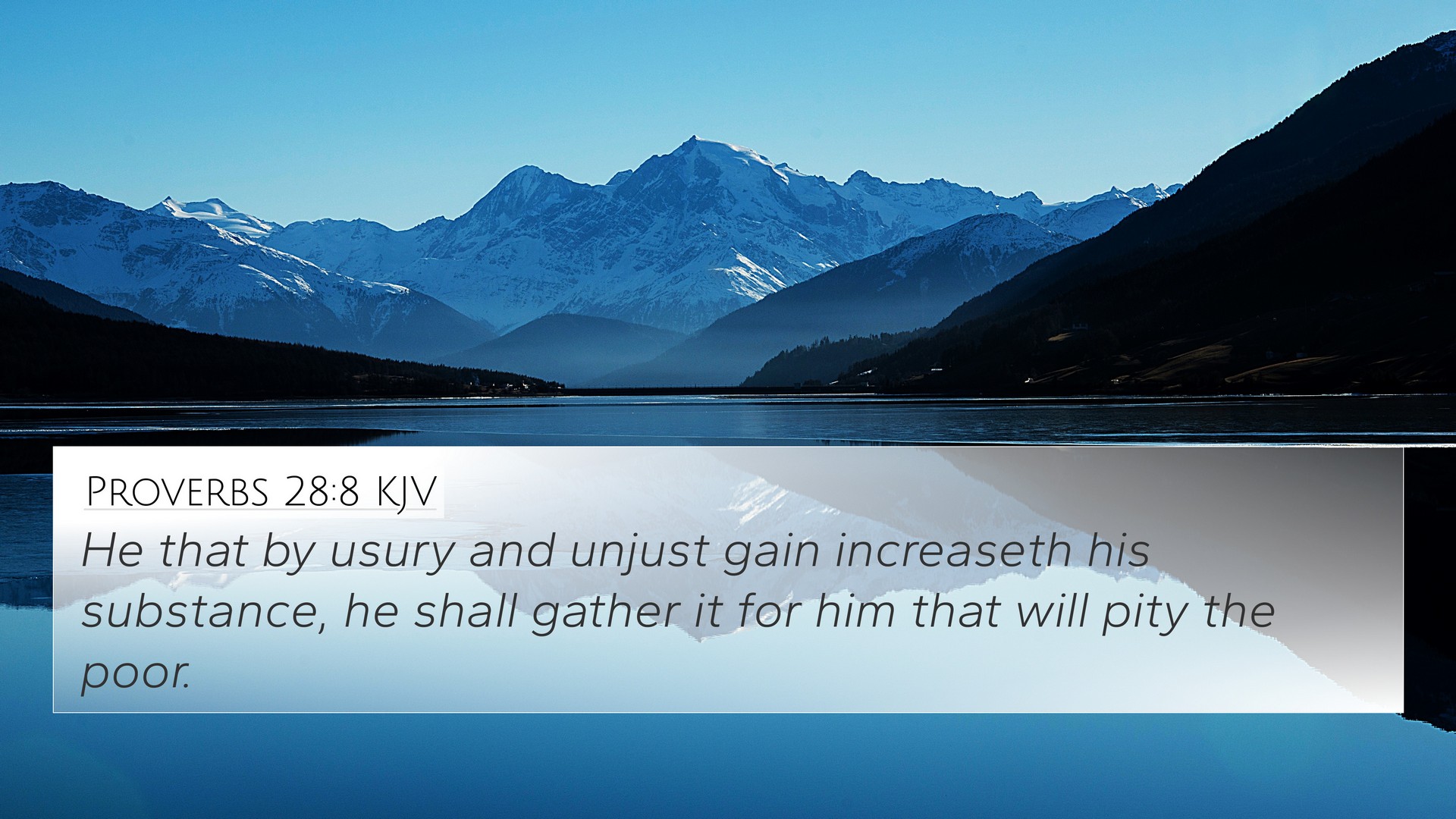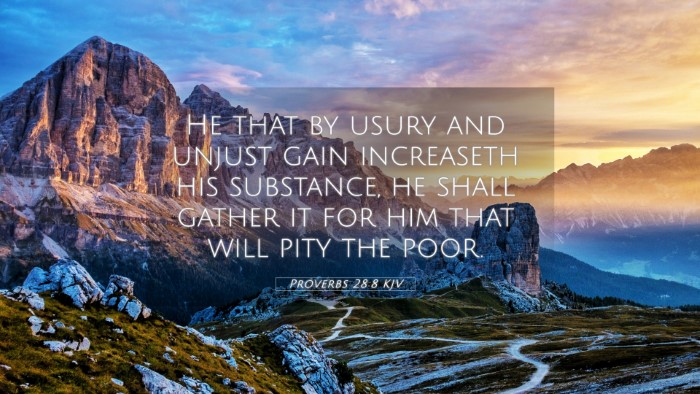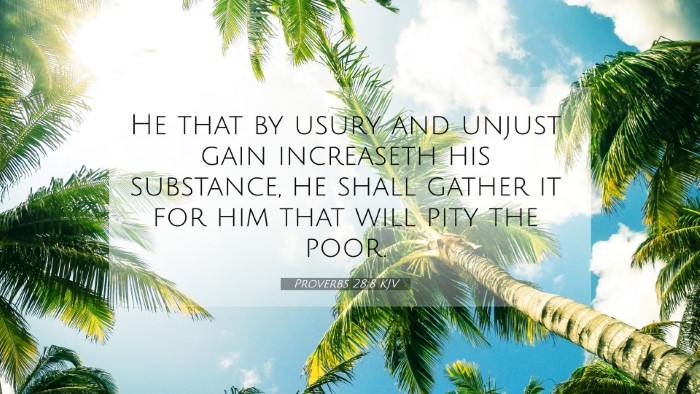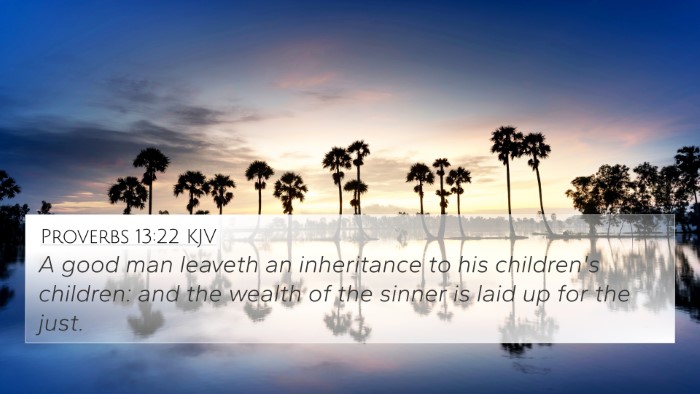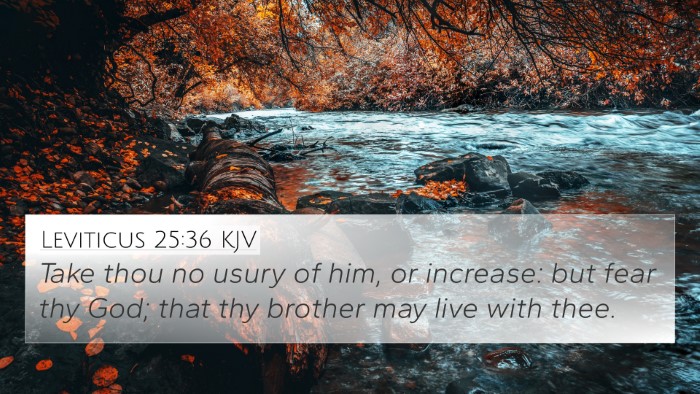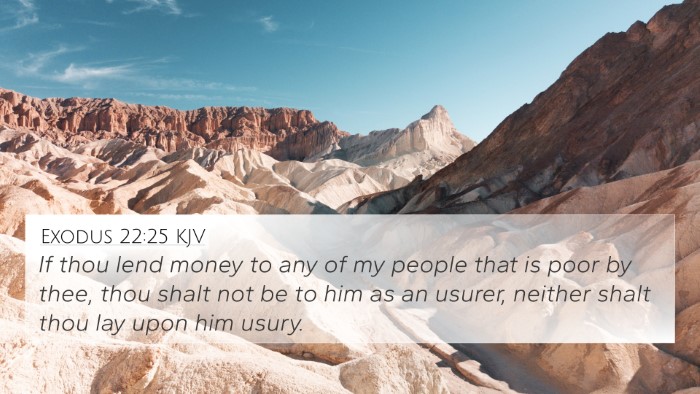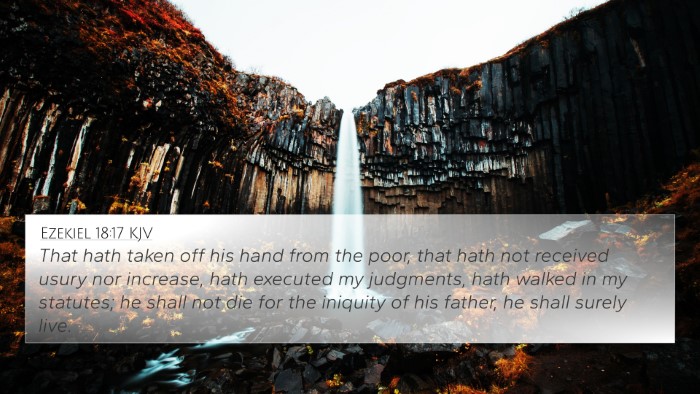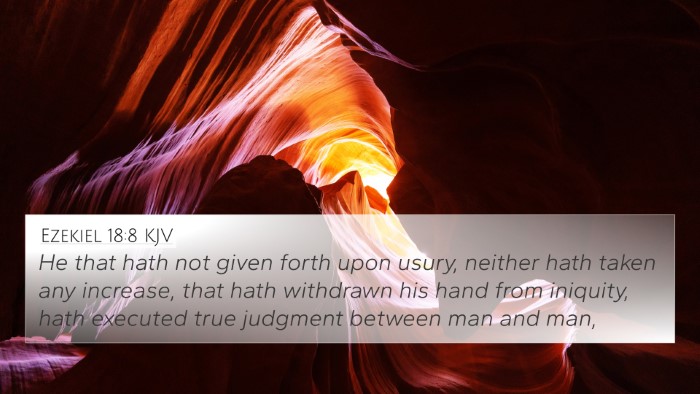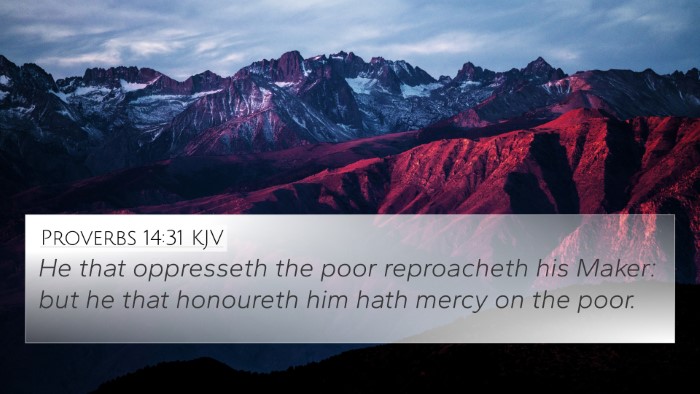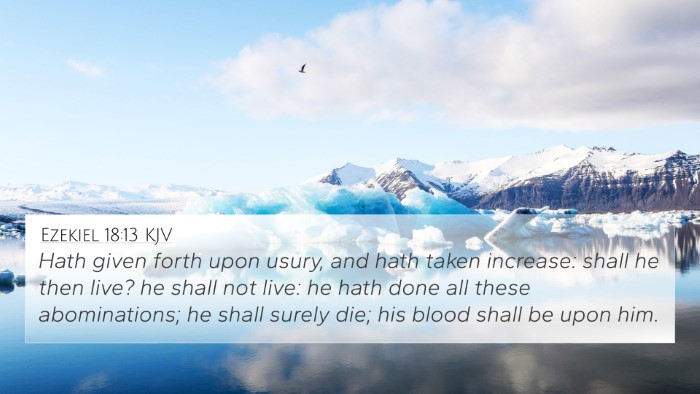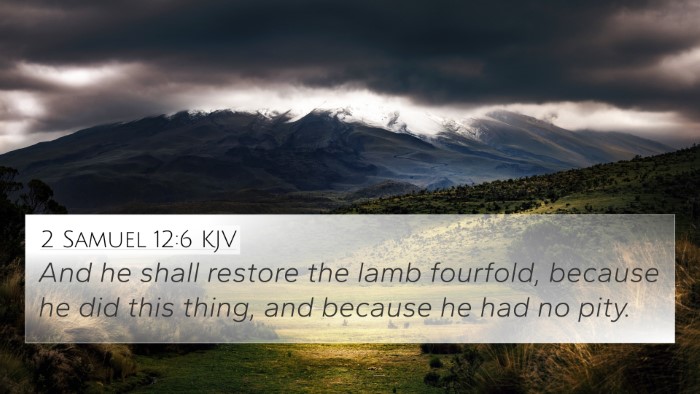Understanding Proverbs 28:8
Proverbs 28:8 (KJV): "He that augmenteth his substance by usury and unjust gain gathereth it for him that will pity the poor."
Summary of Proverbs 28:8
This verse highlights the moral consequences of acquiring wealth through unfair means, such as usury (the practice of charging excessive interest on loans) and unjust gain. The proverb warns that those who pursue wealth unethically will ultimately find that their riches will serve those who are compassionate towards the poor.
Insight from Commentaries
Matthew Henry: Henry emphasizes that wealth gained through dishonest means will not benefit the possessor in the long run. Instead, it ultimately leads to the redistribution of that wealth to those who act with mercy and kindness, reflecting a divine principle of justice.
Albert Barnes: Barnes notes that the verse underlines the futility of earning wealth through wickedness. He suggests that while the riches may be accumulated, they will be passed on to the generous and compassionate, highlighting an awareness of divine justice.
Adam Clarke: Clarke explains that the reference to “usury and unjust gain” serves as a reminder of the importance of integrity in financial dealings. He points out that these individuals may prosper momentarily but will ultimately lose their wealth to those who have pity on the downtrodden.
Bible Cross-References
- Exodus 22:25: "If you lend money to any of my people who are needy, do not be like a money lender; charge no interest."
- Psalm 37:21: "The wicked borrow and do not repay, but the righteous give generously."
- Proverbs 22:16: "He who oppresses the poor to increase his wealth and he who gives gifts to the rich—both come to poverty."
- James 5:1-3: “Now listen, you rich people, weep and wail because of the misery that is coming on you... your wealth has rotted, and moths have eaten your clothes.”
- Ezekiel 22:12: "In you they take bribes to shed blood; you take usury and increase, and you have made profit from your neighbors by extortion."
- Proverbs 13:11: "Wealth gained hastily will dwindle, but whoever gathers little by little will increase it."
- Proverbs 11:28: "Whoever trusts in his riches will fall, but the righteous will flourish like a green leaf."
- Isaiah 3:14-15: “The Lord will enter into judgment with the elders and princes of His people; ‘For you have eaten up the vineyard; the plunder of the poor is in your houses.’”
- Matthew 6:24: "No one can serve two masters... You cannot serve God and money."
- Luke 16:19-25: The story of the rich man and Lazarus illustrates the consequences of living in luxury while ignoring the needy.
Connections Between Bible Verses
The connections in this verse with others, like Exodus 22:25 and Psalm 37:21, form a clear thematic thread concerning the ethical implications of wealth. Usury is condemned across scriptures, reinforcing the moral that wealth acquired unjustly will lead to one’s downfall. This inter-Biblical dialogue emphasizes a consistent biblical call to ethical treatment of the poor and responsible stewardship of financial matters.
Thematic Bible Verse Connections
This verse offers valuable insights into the broader biblical themes of justice, mercy, and the transient nature of earthly riches. The crux of the matter lies in understanding that wealth should be utilized to uplift others, and gaining it through unjust means ultimately has serious consequences. The verse also invites reflection upon the moral principles that govern financial dealings, urging believers to adopt a heart of generosity and concern for the less fortunate.
Tools for Bible Cross-Referencing
To explore the cross-references related to Proverbs 28:8 further, several tools can be helpful:
- Bible Concordance: A versatile tool that allows for easy searching of terms and themes throughout the scriptures.
- Bible Cross-Reference Guide: This guide highlights parallels and relationships between different scriptures.
- Cross-Reference Bible Study: Methods that encourage examining connections between verses for deeper understanding.
- Bible Reference Resources: Comprehensive materials that provide insights into related scripture.
Conclusion
Proverbs 28:8 serves as a profound reminder of the ethical considerations surrounding wealth. By comparing this verse with others, readers can gain insight into the consistent message of devotion to righteousness and the condemnation of greed. The biblical text consistently encourages believers to cultivate a generous spirit while serving as stewards of their resources with integrity.
